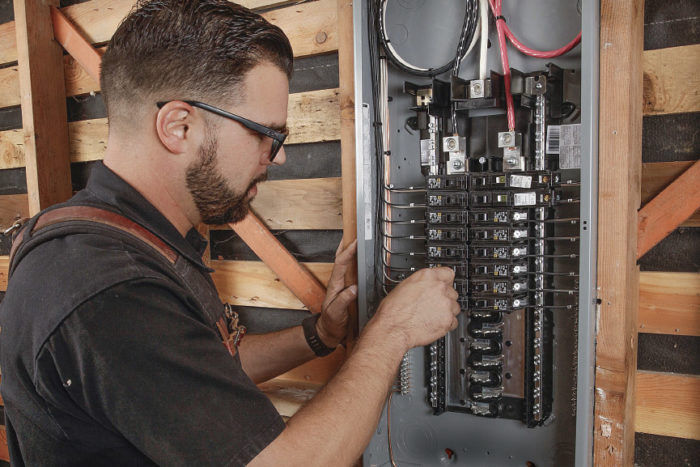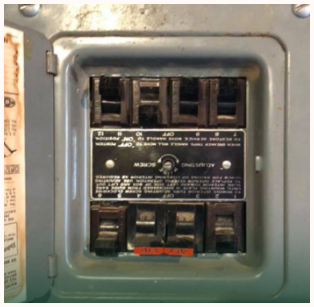Ephrata’s June Climate and Electric Risks
Welcome, Ephrata homeowners! June in our beautiful Grant County town brings warm, dry days and cool evenings—perfect for patio barbecues and lawn care. Daytime highs shift from the high‑70s (77 °F) to mid‑80s (85 °F), with nighttime lows around the mid‑50s. Rain chances dip from about 12 % at the start of the month to roughly 6 % by the end, but that doesn’t mean we’re out of the woods.
Here’s the kicker: those rare June storms? They can pack a punch—lightning, hail, and sudden wind bursts that knock out power lines or fry your home’s sensitive electronics. Throw in increased air conditioner usage, and you’ve got a recipe for flickering lights, breaker trips, or even surging devices.
In short, Ephrata summer storms may be sporadic, but their electrical impact isn’t. That’s why this blog gives you a fresh, local, and friendly checklist to protect your home this June. We’ll cover what storms can do, the warning signs, and exactly what to do (and not do). Let’s ensure you stay cool, safe, and powered-up all season long.
1. Understand Storm Risks: Lightning, Wind & Hail
Ephrata is officially “arid continental,” meaning we enjoy mostly dry summers—until a surprise thunderstorm rolls in. In June, cloud cover drops from about 54 % to 30 % , but storms can still pop up when lower-pressure fronts meet residual moisture from the Columbia River region.
Historical records show severe June storms with hail and winds near 60 mph sweeping across eastern Washington—including Grant County—capable of knocking over power lines and damaging outdoor equipment. And let’s not forget lightning—electrical storms don’t need to strike directly to create dangerous surges. A bolt landing a mile away can still pack a wallop.
Storm-related damage can show up as:
- Spikes that blow out breakers or appliances
- Arcs that damage wiring or breaker panels
- Power loss that stops cooling systems mid‑weekend cookout
It may be dry here most days, but when June storms arrive, readiness is everything. That’s why steps 2–6 focus on proactive storm-proofing.
2. Inspect Your Main Panel for Loose Connections
Your main breaker panel is ground zero for electrical protection during a storm. Yet higher summer temperatures (up to 85 °F) can naturally heat things up—and a sudden surge only adds to the stress, making small faults worse.
Check for:
- Buzzing or humming noises
- Warm cabinet or breaker switches
- Flickering lights or dim “blips” whenever the A/C kicks on
These point to poor connections or failing components. Storm-induced power spikes exacerbate these small problems, risking panel failure or electric arcs.
Here’s how to prepare: Schedule a licensed electrician from Home Electrical Services to tighten all connections, replace old or faulty breakers, and verify panel grounding. A well-maintained panel can handle storm-induced surges with greater ease—and, just as important, storm-resistant panels cost less than emergency repairs.
3. Upgrade to Whole-Home Surge Protection
Let’s talk surges. Far beyond what a power strip can handle, surges rip through electrical systems, damaging electronics, appliances, and sensitive panel components. June thunderstorms in Washington bring lightning strikes even miles away—and you don’t need a cloud overhead to feel the jolt.
File this under: Better protected than sorry
- Whole-home surge protectors clamp down spikes before they enter your wiring system
- Replaces need for plug-in strips as your only line of defense
- Can safeguard your fridge, smart TV, sump pump—and yes, your high-efficiency A/C
Home Electrical Services recently shared the “Ultimate May Checklist for Whole‑House Surge Protection,” and trust me, it’s popular because it works. For Ephrata June dwellers, upgrading or inspecting this system is a storm-smart move. We handle testing, installation, and maintenance—you do the relaxing.
4. Test & Weatherproof Outdoor Outlets & GFCIs
Summer = sprinklers, outdoor lighting, pressure washers—basically, water and electricity in your backyard. Wet outlets are dangerous, but GFCI protection saves lives—if it’s working. Storm season adds moisture and wind, so spoiled seals or corroded connections are a mismatch for June usage.
Your storm-safe plan:
- Manually test GFCIs monthly: press ‘TEST,’ then ‘RESET’
- If it doesn’t trip/reset properly, call a pro
- Inspect outlet covers, screws, and any evidence of corrosion
- Seal gaps, replace worn parts, add weatherproof covers where needed
Our licensed team from Home Electrical Services will thoroughly check every outlet around your home. From your pool pump to your patio lights, we’ll confirm safe operation. Summer fun, minus the shocking surprises.
5. Secure Overhead Wiring and Tree Branches
Here in Grant County, a sudden wind burst from a storm can toss tree branches into overhead power lines. That’s a prime cause of outages—and potentially fires.
Walk your property and trim back any limb within six feet of overhead lines. But tread carefully:
- Don’t attempt trimming near power lines—call professionals
- Have any sagging or loose wiring inspected
- Consider upgrading to coated cables or conduit for weather protection
A little ahead-of-storm pruning and maintenance from Home Electrical Services can mean the difference between staying powered and paying for emergency fixes.
6. Prepare a Portable Generator or Battery Backup Plan
Even the best-protected home can lose power during a major storm. If you’ve got humidifiers, sump pumps, medical devices, or just want A/C during a heat wave, reliable backup matters.
Options:
- Portable generators for small appliances and basic A/C
- Dedicated outlets wired into the panel
- Whole-home battery backups that kick in automatically
Discuss power needs, runtime, refueling plans, and transfer switch safety. We’ll help guide you—and even ensure diesel storage meets zoning codes. Whether it’s a weekend outage or wildfire-related shutoff, we’ve seen what Ephrata residents need—and we’re equipped to help.
Frequently Asked Questions
Q: How often should I test my GFCIs and surge protector?
A: GFCIs monthly; surge protection annually. Storm season? Definitely before June ends.
Q: If my panel looks old but works, do I need to replace it?
A: An inspection is worth it. Loose parts or aging breakers under load may not survive a surge or heat + load stress.
Q: Aren’t portable power strips enough?
A: No—surges from lightning hit far too fast and hard. Homeowners deserve whole-home protection, like that in our May Surge Protection Checklist.
Q: Do I need permits for generator installation?
A: Yes—you need transfer switch wiring properly tied into your panel. We handle the permitting and installation to code.
Q: Does trimming trees really matter?
A: Seasonal winds (7+ mph average) can uproot branches. A bigger oak with a broken limb can take out power lines—and your power too.
Wrapping Up: A Storm-Safe Summer Starts Now
Ephrata’s June climate is ideal: sunny, pleasant, with minimal rain . But even a single surprise storm can cause big electrical trouble. A few steps now—panel inspection, surge protection, GFCI testing, tree trimming, and generator backup—are your ticket to:
- Fewer breaker trips and less flicker
- Safe outdoor living all summer long
- Smooth, uninterrupted weekends and family time
- Peace of mind every time a dark cloud rolls our way
Your June To-Do List
- Panel inspection and tightening
- Whole-home surge protection check or upgrade
- Weatherproof and test outdoor outlets
- Clear tree limbs from overhead lines
- Get generator or battery backup ready
- Book your maintenance before July’s heat and lightning storms arrive
Ephrata summers are too beautiful to spend worrying about power or electrical fires. Let Home Electrical Services take care of the details—so you can enjoy your yard, grill, and good times worry-free. Schedule your storm-safe inspection today and power your summer with confidence.
Ready for peace of mind? Visit our Contact page or call us now and let’s get your home storm-ready before the next thunderclap.






